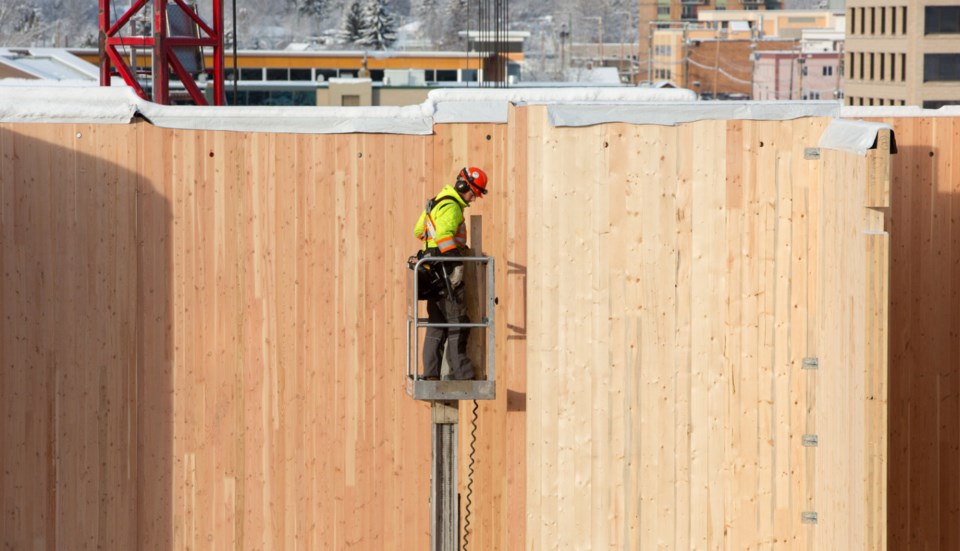Will mass timber buildings eventually be built in Delta?
That remains to be seen as an application has yet to come forward to build such a project, which have their primary load-bearing structure made of solid or engineered wood.
The provincial government this week announced businesses, local governments and First Nations can apply for Mass Timber Demonstration Program’s (MTDP) through the third intake of funding.
The province says it is investing $2 million into the latest intake of the MTDP, building on $5.4 million already invested to support 12 mass timber building projects and four research projects from the first two intakes.
“Mass timber helps reduce our carbon footprint, adds value to our forestry sector and provides new opportunities for jobs, growth and innovation in every corner of the province,” said Delta North MLA Ravi Kahlon, Minister of Jobs, Economic Recovery and Innovation, in a news release. “As we gather this week at the Union of B.C. Municipalities convention, we are excited about the opportunity for more communities to look to mass timber for their building needs as we continue growing an inclusive, sustainable, clean economy that works for all British Columbians.”
Earlier this year, Kahlon announced the Mass Timber Action Plan, as well as funding for several new mass timber housing and infrastructure projects.
According to the province, the Mass Timber Action Plan shows that B.C. could have as many as 10 new mass-timber manufacturers by 2035.
Also according to the province, larger-diameter trees are not needed to make mass timber.
Mass timber buildings can be engineered for strength by fastening together layers of smaller-dimension wood with glue, dowels or nails, a process that can reportedly deliver as much as seven times the economic value when compared to milling logs for lumber.
Mass timber also reportedly can match or exceed the structural performance of concrete and steel while reducing carbon emissions by as much as 45 per cent.
The government last year announced funding for several demonstration projects and that it also established a new advisory council to accelerate the adoption of mass timber building systems.
The government already invited municipalities, including the City of Delta, to sign on as mass timber construction early adopters in the Provincial Office of Housing and Construction Standards Mass Timber Early Adopter Initiative.
In 2020, Delta council agreed to sign an expression of interest, but also added conditions.
A new National Building Code will allow encapsulated mass timber construction up to 12 storeys, which in turn will be reflected in the next edition of the B.C. Building Code due out in 2022/23.
The provincial government introduced its early adoption initiative for participating municipalities to permit the construction of such buildings up to 12-storeys with engineered wood products in advance of the provincial adoption of the National Building Code.
A Delta staff report last year noted Delta Fire and Emergency Services would support design elements that utilize passive fire protection, active fire detection and suppression techniques equal to or better than the B.C. Building Code.
Any project would also be subject to the requirement for a Construction Fire Safety Plan.
Delta’s fire department also supported the same fire protection standards that Vancouver’s fire department required for the Brock Commons, a 12-storey mass timber project at the University of B.C.
Council also agreed with a staff recommendation for a city requirement for independent reviews by professional licensees for submitted structural designs as part of building permit applications.
The provincial government says B.C. is a leader in the mass timber sector and especially within North America, with 307 mass timber structures having been built throughout the province as of mid-2022. B.C. has completed almost as many mass timber projects as the entire U.S.



